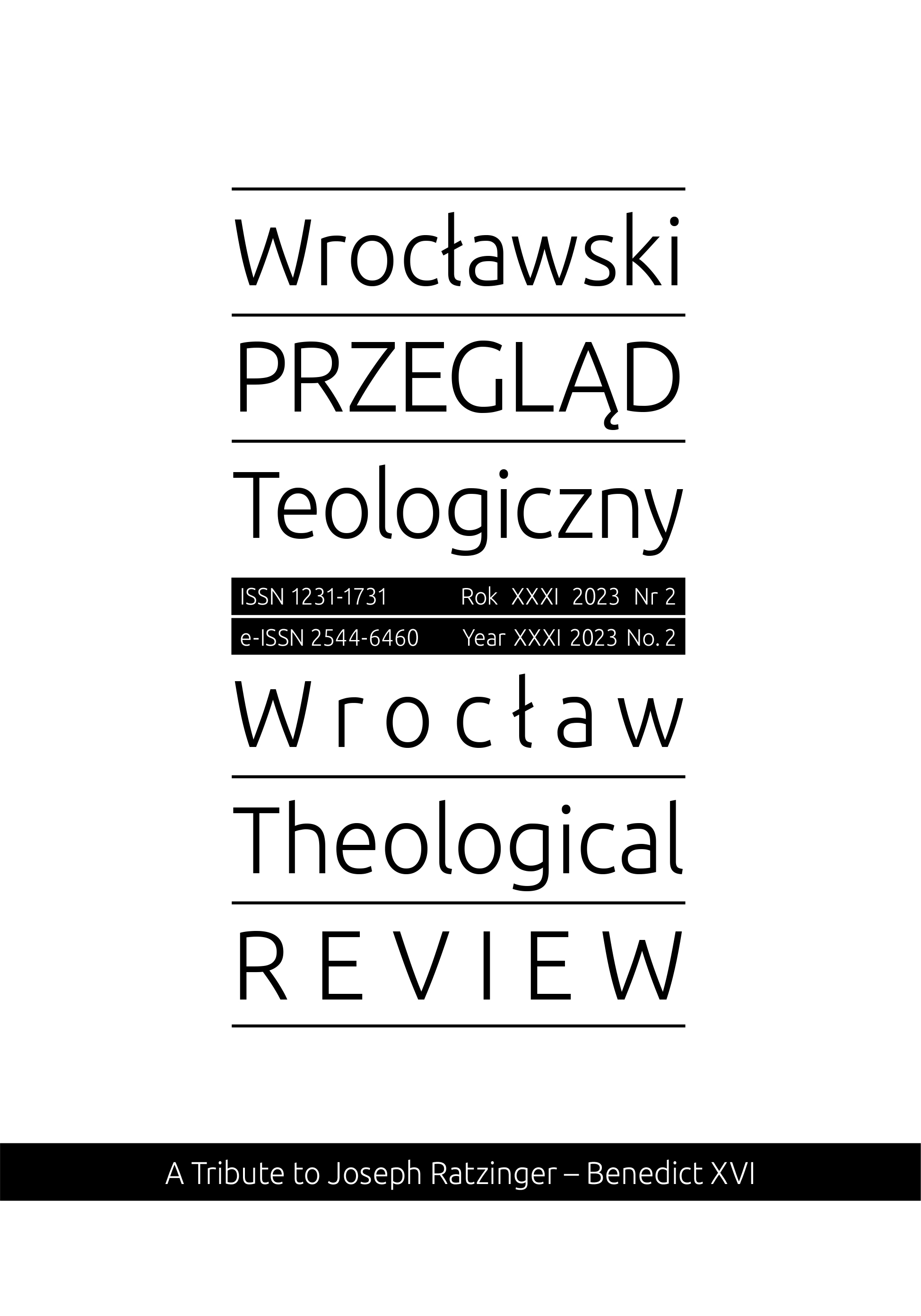Ratzinger’s Trinitarian Ontology and Its Patristic Roots: The Breakthrough of Introduction to Christianity
Ratzinger’s Trinitarian Ontology and Its Patristic Roots: The Breakthrough of Introduction to Christianity
Author(s): Giulio MasperoSubject(s): Christian Theology and Religion, Theology and Religion, Systematic Theology
Published by: Papieski Wydział Teologiczny
Keywords: Joseph Ratzinger; Trinity; Trinitarian ontology; Trinitarian epistemology; relational ontology; relation; Introduction to Christianity; patristic roots of Trinitology; negative theology
Summary/Abstract: The article shows the existence in Joseph Ratzinger’s thought of a true Trinitarian ontology, which is a relational ontology, particularly with regard to the Trinitarian part of Introduction to Christianity, which originates with the patristic inspiration, in particular that of Augustine, but also of the Greek Fathers, in other words: of such an ontology of the Trinity, which can be understood both as an objective genitive, i.e. as a re-understanding of God’s being in the light of Christian revelation, and as a subjective genitive, i.e. as a re-reading of the world and history in the light that comes precisely from the re-understanding of being in a Trinitarian key. The proof of the thesis is developed in three steps, starting with a rereading of negative theology, proposed by Ratzinger, as a cipher of Trinitarian doctrine, in the line of Trinitarian epistemology, insofar as it is relational. From here, it goes on to Ratzinger’s view of the person as the epiphanic locus of Trinitarian ontology, and concludes through his Christology that the transition to a Trinitarian re-comprehension of creation is inescapable.
Journal: Wrocławski Przegląd Teologiczny
- Issue Year: 31/2023
- Issue No: 2
- Page Range: 5-33
- Page Count: 29
- Language: English

